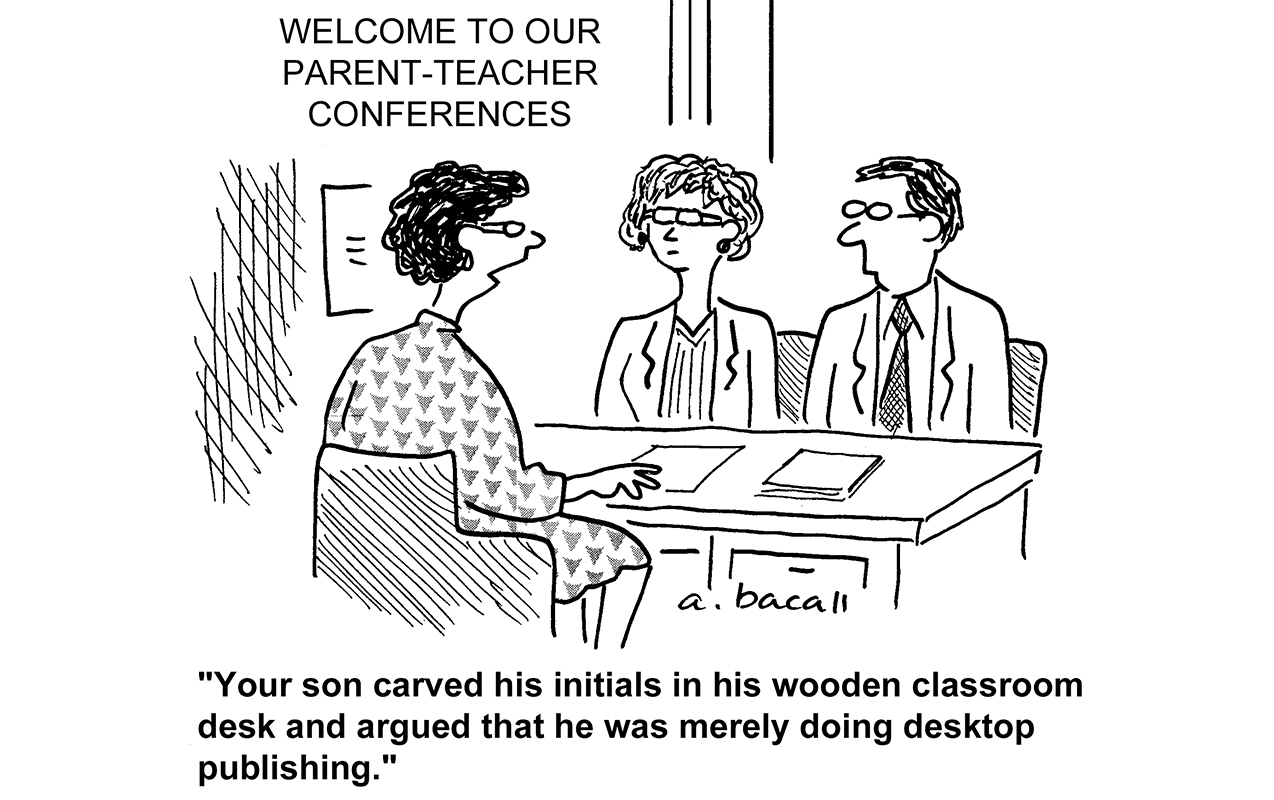The Aftermath of Parent Teacher Conferences
We just had to start with some laughter because the aftermath of teacher conferences can really throw us for a loop! You may have heard “Liza has made a fantastic transition to 5th grade” and then allowed yourself to breathe or heard “Unfortunately, Liza seems to be finding 5th grade very difficult” and then felt your heart breaking in half because you received confirmation that your child is continuing to struggle.
Whichever version you recently heard, keeping the lines of communication open and talking with your child about what is working and what isn’t is really important. If you are feeling defeated, take a deep breath and get back at it. Your child needs you to!
Here are our Top 5 Suggestions for moving on after teacher conferences regardless of the news you heard.
- Ask questions when you are confused and ALWAYS follow your gut instinct. Teachers may not be aware of information you are missing or questions you may have. Write down your questions as they arise and circle back to the questions if they go unanswered. Use the notes app on your phone to keep an ongoing list.
- Know your allies and reconnect – It is very important that you have someone at the school you feel comfortable talking to and that you feel has a good understanding of your child. This person will continue to be invaluable! Share good news and upsetting news because this person is on your family’s side. Remember allies don’t have to be people who are currently interacting with your child.
- Always have a written record of what you observe happening at home in relation to school. For example, does homework take much longer than it should? Is your child having huge meltdowns over homework? Are you having to “reteach” what your child should be learning in school? Does your child typically say he doesn’t want to go to school? Oftentimes teachers have no idea what is happening for your child after the school day ends. Your child may hold it together all day and then unravel at home. Having a record makes it easy to explain what is happening at home and provides a timeline of behavior.
- Bring someone along to school meetings, such as a trusted friend who has a calming logical presence or a hired professional. These meetings are emotional and you are the expert on your child, always remember that. You can advocate for whatever you would like for your child. Having an outside person on your side can boost your confidence and put you at ease.
- When emailing a teacher to check in always remember to:
- Keep the length short as teachers are very busy and you want this to be easy to respond to.
- Make it very clear what you would like to check in on so that the teacher knows exactly what you are asking about.
- Acknowledge that you truly appreciate the teacher’s efforts. This isn’t fake praise. This is a genuine statement commenting on the difference the teacher’s support makes in the life of your child.
We know this can be a challenging time and we also know that your child is going to develop the skills they need over time. When it feels like you are going in circles, know that you are always planting seeds for strategies that will be used in the future. Also know that you are not alone as there are many parents and children within the same classroom as your child that are having similar experiences.
Don’t forget we are here for you so send us an email with any questions or leave your comments here and we will get right back to you!
P.S. Having a solid treatment plan is also critical so check out our 4 Step Guide to Your Child’s Treatment Plan if you haven’t already!








